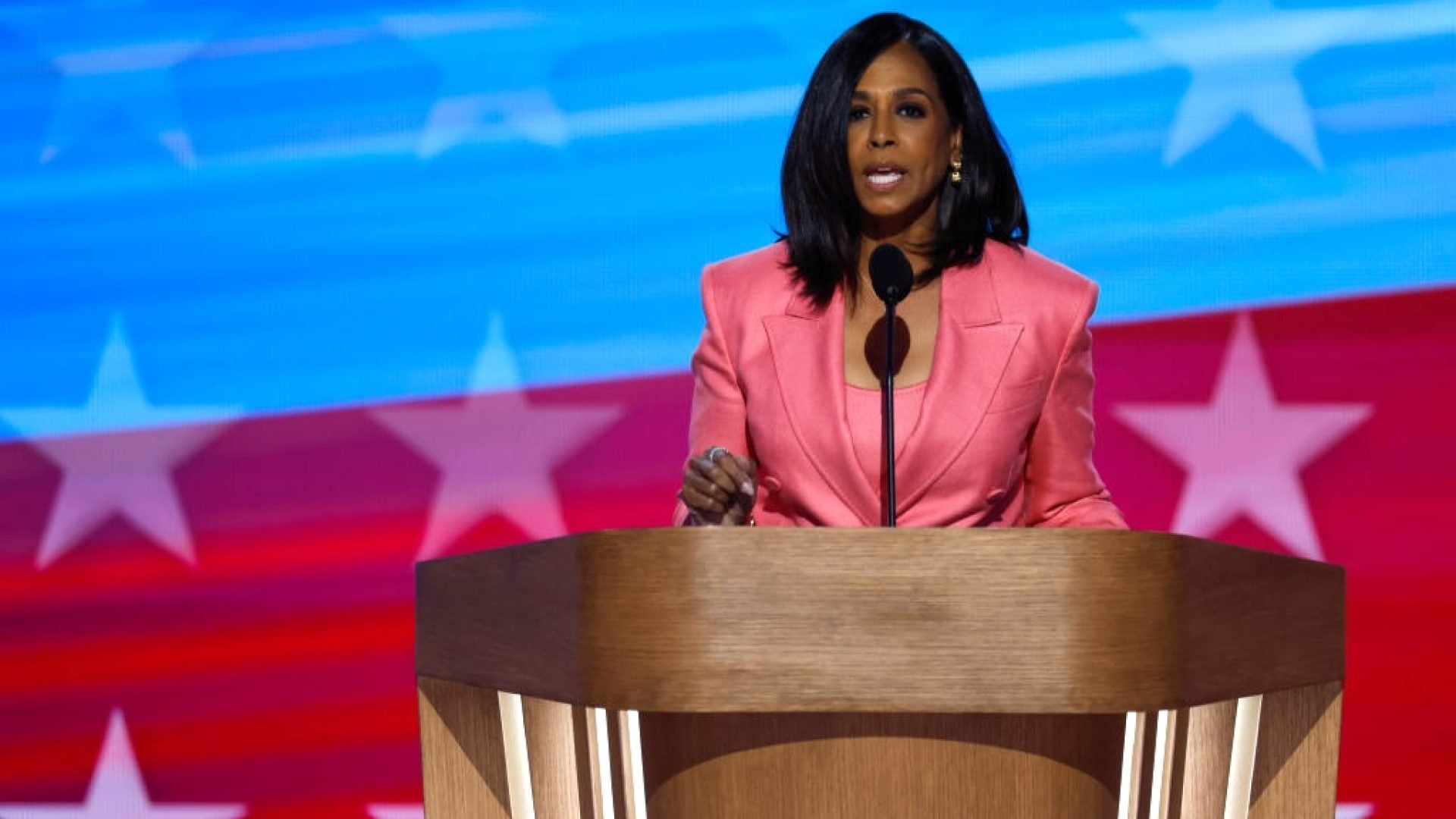
Maya Harris, the younger sister of Vice President Kamala Harris, is stepping into the spotlight to address a pressing issue that resonates deeply with many Black women across the nation—maternal health. On Monday, September 23, she will moderate a vital discussion in Flint, Michigan, a topic that has taken center stage in this election season, as highlighted by the Harris-Walz campaign.
Amid growing threats to reproductive rights in America, the campaign says it’s committed to safeguarding a woman’s right to choose while also tackling the broader health disparities faced by Black women, particularly in the realm of maternal healthcare.
At this pivotal roundtable, Maya Harris, an experienced lawyer and senior policy advisor, will be joined by a group of national and local Black leaders, including Representative Lauren Underwood (D-IL), U.S. Senator Laphonza Butler (D-CA), Michigan Lt. Governor Garlin Gilchrist II, Paula Thornton Greear of Planned Parenthood Action Fund, and Danielle Atkinson, founder of the advocacy organization, Mothering Justice, according to the Harris-Walz Campaign.
Together, these leaders will delve into the critical stakes for Black maternal health, shining a light on the potential challenges posed by the Project 2025 agenda. This discussion is part of the ongoing Harris-Walz “Fighting for Reproductive Freedom” bus tour, which kicked off in early September. The tour emphasizes the urgent need for action and awareness in this vital area of healthcare.
“From her days as a prosecutor to her work as Vice President, my sister, Kamala Harris, has only ever had one client: the people,” Maya shared in an exclusive statement to ESSENCE. “As Vice President, she made the Black maternal health crisis a priority and tackled the disparity head-on. While Donald Trump travels the country bragging about overturning Roe v. Wade, which has exacerbated this crisis, Kamala will continue charting a new way forward that includes signing a bill to restore Roe as soon as Congress passes it,” she said.
As ESSENCE previously reported, during the Presidential debate on September 10, Vice President Harris delivered a strong response to Donald Trump’s defense of his abortion policies. Harris stated, “The government and Donald Trump certainly should not be telling a woman what to do with her body.”
She described the difficult decisions women face, including medical complications and the need to travel out of state for an abortion. Trump, who appointed three Supreme Court justices responsible for overturning Roe v. Wade in 2022, attempted to portray his stance as more moderate by criticizing extreme abortion bans and expressing support for exceptions in cases of rape, incest, or danger to the mother’s life.
However, he remained unapologetic about the reversal of federal abortion protections, stating, “I did a great service in doing that. It took courage to do it.” Trump also repeated many of his familiar arguments, falsely claiming widespread support for returning abortion rights to the states and inaccurately accusing Democrats of advocating for late-term abortions, including the false claim that certain states permit abortion even after a baby is born. Moderator Linsey Davis immediately fact-checked this, clarifying, “There is no state in this country where it is legal to kill a baby after it’s born.”
The timing of this Black maternal health discussion couldn’t be more crucial. Just a week ago, the news broke about Amber Thurman, a 28-year-old mother from Georgia who died in 2022 after being denied a necessary medical procedure following a complication due to the state’s restrictive abortion laws. ProPublica said the case marks the first incident of an abortion-related death that an official state committee deemed “preventable” has been made public.
Her death highlights the severe implications of these policies, particularly for Black women, who are more than three times as likely to die from pregnancy-related causes than white women in the United States.
Adding to the momentum for change, on September 18, the Global Coalition for Transnational Solidarity and Action to Bridge the Gap in Maternal Health for Women and Girls of African Descent officially launched at the United Nations Population Fund(UNFPA) in New York.
This initiative, supported by several countries, including the United States, aims to address the Black women’s health, already undermined by systemic racism in the healthcare system, faces even greater risk as abortion rights are rolled back. The maternal health crisis is no longer a distant political debate—it’s a life-or-death issue for Black mothers and their families.
For the Harris-Walz campaign, Flint, Michigan, marks a key stop in the Harris-Walz bus tour, which kicked off on September 3 in Palm Beach, Florida, where a near-total abortion ban has recently gone into effect. With over 50 stops planned in crucial states, including Michigan, the tour aims to energize and mobilize supporters, reminding them of what’s at stake if reproductive freedoms are not restored.